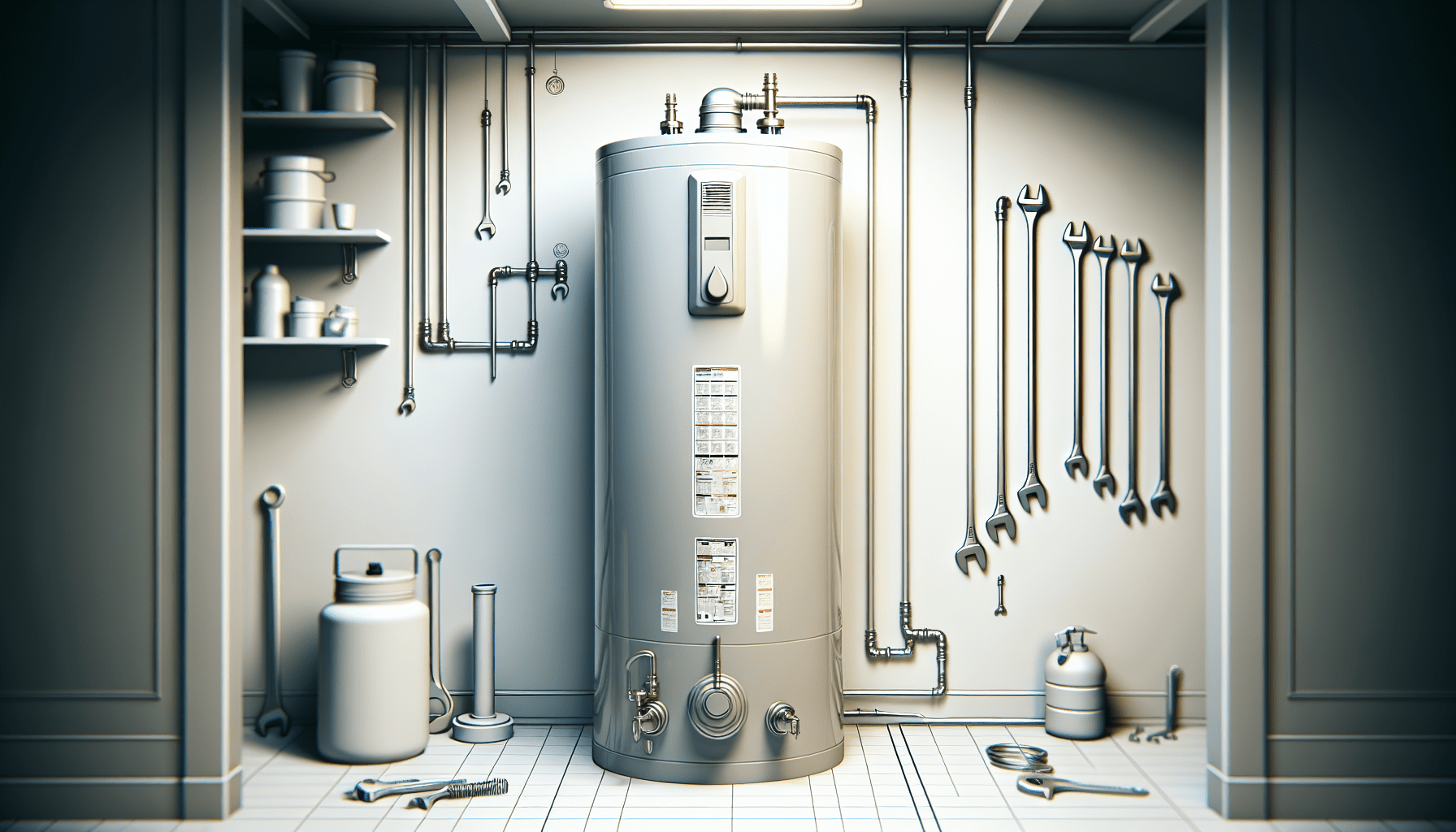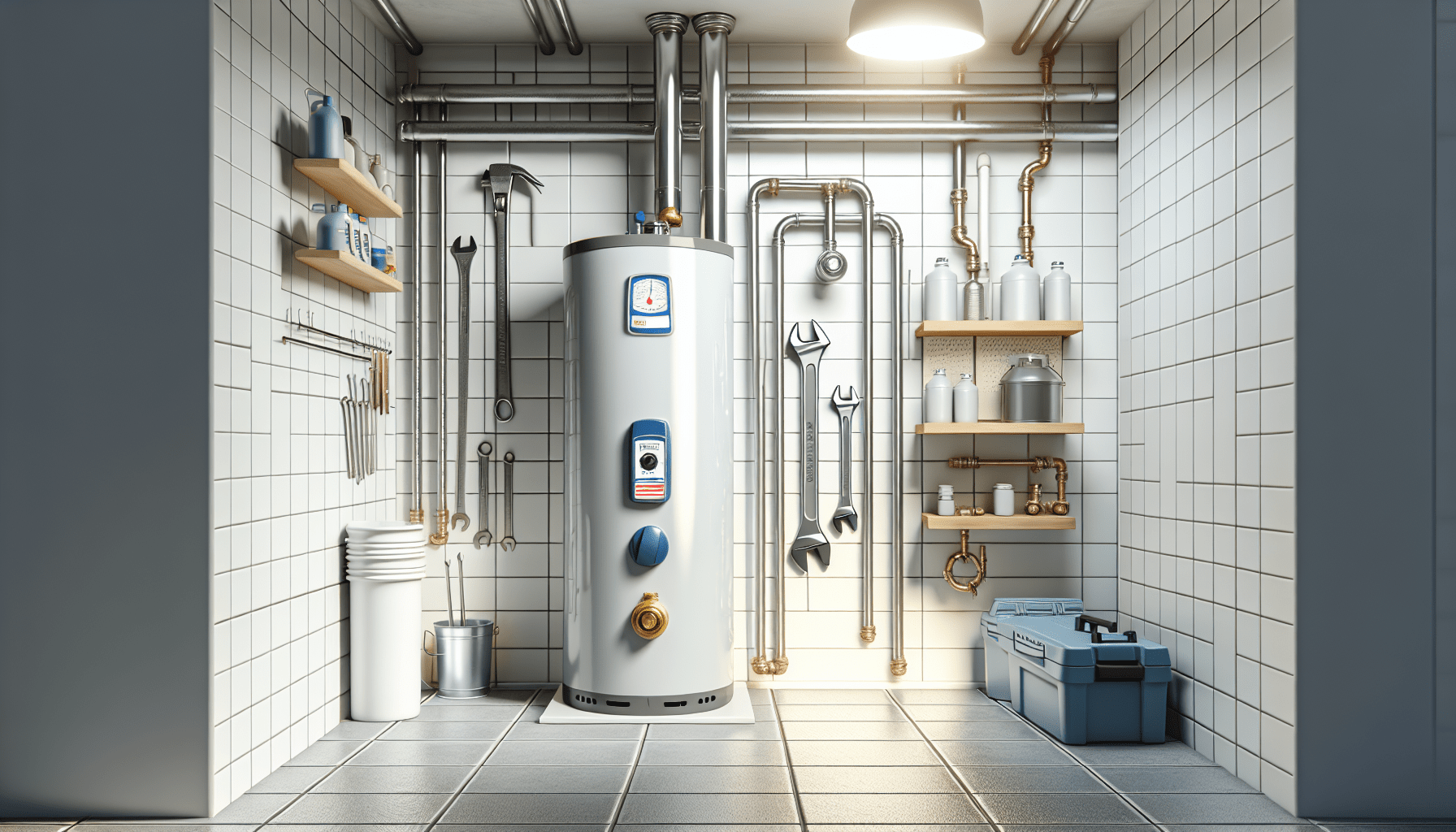What if you could step into a warm shower and feel the day’s worries wash away? That sounds delightful, doesn’t it? But before you get to enjoy those relaxing moments, you need to figure out the perfect size of gas water heater for your home. Let’s break this down together so you can confidently choose the right option!

Understanding Your Hot Water Needs
When it comes to hot water, one size definitely does not fit all. Your family’s needs play a crucial role in determining the appropriate size for your gas water heater.
Assessing Hot Water Usage
Think about your daily routine. How many people are in your home? Consider the activities that require hot water: showers, dishes, laundry, or even running a dishwasher. Each person in your home might add a significant amount to your daily hot water usage.
To give you a better idea, here’s a quick guideline on the average hot water usage:
| Activity | Average Gallons Per Use |
|---|---|
| Shower | 10 gallons |
| Dishwasher (per load) | 6 gallons |
| Washing Machine (per load) | 15 gallons |
| Bath | 30 gallons |
| Handwashing Dishes | 2 gallons |
Now you can start to see how those gallons add up! By adding your average daily hot water consumption together, you can get a clearer picture of what size water heater you’ll need.
Peak Hour Demand
You might be wondering what “peak hour demand” means. Essentially, this is the maximum amount of hot water needed during the busiest hour of the day. For example, if your family typically showers in the morning and starts dishes around the same time, you could be drawing hot water from multiple sources at once.
Consider the following simple formula to calculate your peak hour demand:
- List all hot water activities during the peak hour.
- Estimate how much hot water each activity uses (using the table above can help).
- Add these amounts together to find your peak hour demand in gallons.
Understanding your peak demand will help ensure that you won’t be standing in a cold shower one morning.
Types of Gas Water Heaters
After determining your hot water needs, it’s also crucial to know the types of gas water heaters available, as each type has different capacities.
Conventional Storage Water Heaters
These are the classic models most people think of when they hear “water heater.” They store hot water in a tank, typically ranging from 20 to 80 gallons. Here’s a quick rundown of their pros and cons:
Pros:
- Simple to operate.
- Generally less expensive to purchase.
Cons:
- Can run out of hot water if used heavily during peak times.
- Takes longer to reheat the water.
Tankless Water Heaters
Also known as on-demand water heaters, these units heat water directly without a storage tank. This means you won’t run out of hot water, although it may not supply enough for simultaneous uses.
Pros:
- Endless hot water supply.
- More energy-efficient in the long run.
Cons:
- Higher initial cost.
- Can be harder to install, depending on your home’s setup.
High-Efficiency Water Heaters
These are designed specifically to conserve energy and ultimately save you money on your utility bills. While they may have a higher upfront cost, their long-term savings often make them a wise investment.
Pros:
- Lower energy costs.
- Environmentally friendly.
Cons:
- Higher initial purchase and installation costs.

Sizing Your Gas Water Heater
Now that you understand the different heater types, let’s move on to sizing.
For Conventional Storage Water Heaters
To find the right capacity for a conventional storage water heater, a helpful guideline is:
- 1-2 people: 20-30 gallons
- 3-4 people: 30-50 gallons
- 5 or more people: 50-80 gallons
If you gather your data and find that your hot water demand lands somewhere in the middle, it’s generally advisable to choose the next size up. This way, you’re prepared for any surprises.
For Tankless Water Heaters
Sizing a tankless heater works a bit differently. Instead of gallons, you’ll be looking at flow rates in gallons per minute (GPM).
To determine the GPM you need, think about all the appliances or fixtures that might be used at once:
- Shower (1.5 – 2.5 GPM)
- Dishwasher (1.5 – 2.0 GPM)
- Washing machine (2.0 – 3.0 GPM)
Add these rates together, and consider the maximum flow rate your tankless water heater can handle.
For High-Efficiency Water Heaters
You’ll gauge high-efficiency water heaters similar to conventional storage heaters, but it helps to consult a professional. These systems often use advanced technology to provide improved efficiency, meaning they might have different capacity recommendations.
Other Considerations
While capacity is essential, there are additional factors to keep in mind when selecting a gas water heater for your home.
Energy Efficiency Ratings
When shopping for your heater, pay attention to the Energy Factor (EF) rating. This number indicates how efficiently the appliance converts energy into hot water. The higher the EF, the more efficient the unit:
| EF Rating | Efficiency Level |
|---|---|
| 0.57 or lower | Low Efficiency |
| 0.57 to 0.67 | Moderate Efficiency |
| 0.67 or higher | High Efficiency |
Choosing a high EF rated heater may cost more initially but can save you money over time.
Venting Requirements
Gas water heaters require proper ventilation to safely expel the byproducts of combustion. A professional installer can help determine the necessary venting for your specific type of heater.
Local Climate
The climate in your area can affect how much hot water you use. In colder climates, you may need a larger heater to maintain a consistent supply of hot water, especially if you have a larger family.
Installation and Maintenance
Once you’ve chosen the ideal heater for your hot water needs, it’s time for installation.
Professional Installation
Proper installation by a qualified plumber will ensure that your gas water heater operates safely and efficiently. DIY installation can lead to a host of problems, including gas leaks, improper venting, or even flooding. Investing in a professional will save you headaches down the road.
Regular Maintenance
After installation, keep in mind that regular maintenance will extend your water heater’s lifespan. Routine checks can help prevent sediment buildup, corrosion, or leaks.
- Flush the tank yearly: This helps eliminate sediment that can accumulate over time.
- Check the anode rod: This important component helps protect your tank from corrosion.
Be sure to consult your heater’s manual for specific guidelines.
Conclusion
Finding the right size gas water heater for your home isn’t just about hitting a magical number; it’s about understanding your unique needs. By thoroughly assessing your situation — from daily water usage to the types of heaters available — you can make a more informed decision.
So, whether you’re enjoying a refreshing shower or washing the dishes, having the right gas water heater means you can savor those moments without the worry of running out of hot water. Congratulations on your journey to a comfortably warm household!

